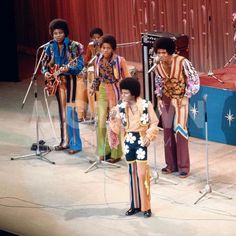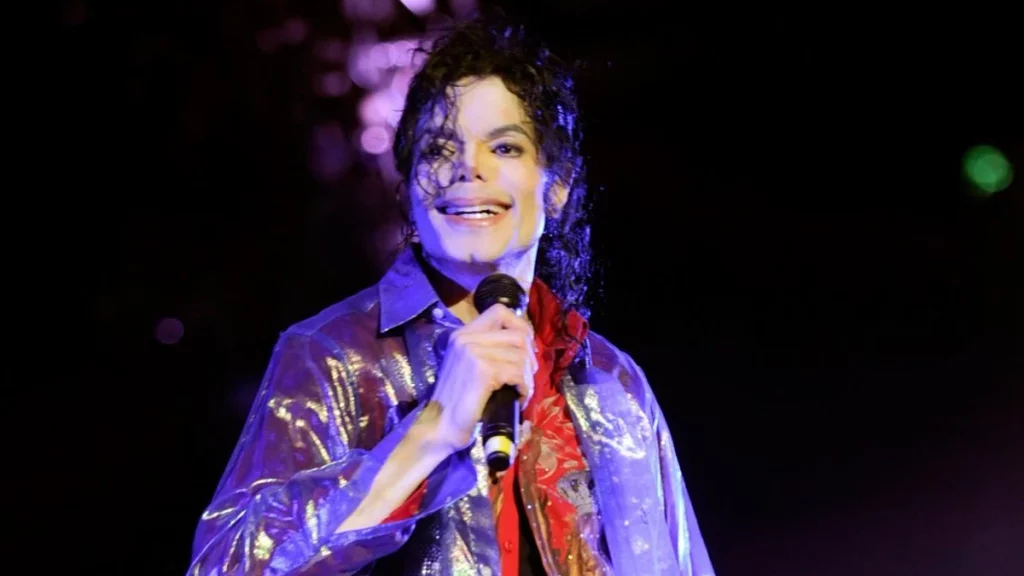Michael Jackson led a life most would describe as the spoils of his past. Yet, being haunted by his less-than-perfect childhood throughout his life did not stop the legend from cementing his place as the King of Pop.
The world stood still on June 25, 2009, when a legend who crooned some of pop music’s biggest hits met his demise just weeks before the long-awaited “This Is it” show was set to commence in London.
With all the tickets sold out, what would have been the long-awaited comeback of the Legendary King of Pop ended up a celebration of Michael Jackson’s life.
And there were lots to celebrate. From his rise as a lanky kid growing up on Jackson Street to a world-renowned musician with a star in the Hollywood Walk of Fame, Michael Jackson made a mark like no other.
Yet, his perception of himself was a far cry from the legend the world came to revere. The icon notably remained stuck in his youth throughout his life, even at the peak of his success.
The syndrome would eventually lead him to undergo a surgical alteration of his phenotype, spur countless rumors, lawsuits, an arrest, and a life of solitude. In fact, many have described the legend’s brief sojourn on earth as one haunted by his childhood.
Michael Jackson’s Childhood
Jackson was born on August 29, 1958, to an African-American family of twelve in Gary, Indiana. He grew up as the eighth of ten children born to dad Joseph “Joe” Walter Jackson and mom Kathrine Esther Jackson.
Jackson’s parents both had an interest in music, each a master of an instrument. Hence, it did not come as a surprise that Joe soon established a band, with his kids as the participants.
At six, Jackson joined the Jackson Brothers, joining his older brothers Jackie, Tito, and Jermaine as backup musicians, alongside Marlon. They had daunting rehearsal sessions, with Joe ever ready to punish whoever flunked.
The Spoils Of Abuse
Being the youngest, Jackson often flopped, putting him at the receiving end of his dad’s belt-lashing constantly. In addition to being physically abusive, Joe often made fun of the youngster’s “fat nose.”
While his siblings think otherwise, Jackson regards that phase of his life as being abused by his dad. As he grew older, Joe meted out harsher punishments, including taking off his artificial eyeballs and making the icon stare into the hole for hours.
Such methods admittedly left Jackson traumatized well into his adulthood, so much that he vowed to never lay hands on his kids if he ever had any.
An Idol In The Making
While his traumatic encounters with his dad robbed him of a major part of his childhood, one of his biggest regrets was not having the chance to be like other kids.

Having joined The Jackson Brothers, later renamed Jackson 5, at a young age, the icon never had the chance to play with other kids his age or do the things they did.
In fact, Joe, in a bid to push his kids’ musical careers, made them spend several hours rehearsing while other kids were out having a good time. His efforts paid off, as the Jackson 5 soon took the world by storm, fronted by Michael Jackson.
Sadly, with that fame came lesser chances to experience the ideal childhood. Before long, Jackson became a teen idol backed by Motown Record.
More fame came along during his formative years, and with it, more money, tours, and hours in the spotlight. He also began recording solo tracks, with his fifth studio album, “Off The Wall,” cementing him as a solo performer.
The Peter Pan Syndrome
Jackson has been open about his lack of opportunity to do the fun things kids did in his youth. Instead, he lived in isolation, away from others his age.
Hence, finally gaining independence as an adult gave him the chance to explore. Jackson found himself drawn to things considered child-like. He could especially relate with the fictional character Peter Pan, a lost child who never grows up.
His cravings for everything youth-oriented led the icon to create a temporary haven for himself, the Neverland Ranch. The ranch, located in California, easily passed for an amusement park, with assorted children, rides dotted around it.
The singer also admitted to developing the urge to join in each time he looked across the streets on occasions and found kids playing. Soon enough, the press began taking a jab at Jackson’s odd fascinations, labeling it “the Peter Pan Syndrome.”
The word became a fixture in pop psychology, referring to an adult male who remained isolated from the world, choosing instead to dwell in his childlike innocence.
A Ghost Of Himself
After developing a broken nose during a rehearsal, Jackson had the perfect excuse to do away with his “fat nose.” After a series of botched nose jobs, he finally achieved the perfection he craved.
According to writer Randall Sullivan, the king of pop’s definition of perfection was a nose just like Peter Pan’s — or at the least, the young actor Bobby Driscoll, who played the character. That fit the vision of himself as a real-life Peter Pan.
Following the alterations, first noticed in his song, “Thriller,” other noticeable changes in his appearance occurred. The most pressing was his whiter skin which the legend repeatedly attributed to the skin condition vitiligo. But the world failed to buy that.
Then came the rumors, which made Jackson’s persona seem mysterious. Speculations that he slept in an oxygen coffin, planned to buy the remains of the Elephant Man and housed his pet chimpanzee in a lavish crib in his bedroom flooded the media.
Music reporter Steve Knopper would later claim Michael Jackson fed those queer notions himself to the press, just to show himself as a particular image. The front was an effective PR mechanism he picked up during his time with Motown.
Nose-Deep In Lawsuits
After years of circling his Peter Pan syndrome, queer persona, and tagging him as Wacko Jacko, the press finally got the perfect scandal to feed off.
In 1993, a man accused Jackson of molesting his 13-year-old son, an allegation the singer denied. With no incriminating evidence, authorities took no further actions against him.
However, the parents filed a lawsuit a month later, prompting Jackson to opt for an off-the-court settlement of $23 million. He faced another charge of child sexual abuse barely 10 years later. Again, he denied the charges.
During a televised interview around that time, the legendary king of pop culture admitted to sharing his bed and bedroom with children with no sexual attachment.
He saw nothing wrong with that since he never made any sexual advancement on them but simply gave them juice, cookies and tucked them in.
That admission only fueled his already-complicated trial. Santa Barbara authorities charged him with seven counts of child molestation and two counts of intoxicating a minor.
After a long, tiring trial that took a toll on Jackson’s health, he was acquitted of all charges on June 13, 2005.
Why Did Michael Jackson Buy Eminem’s Catalog?
Being acquitted did not stop people from harboring terrible notions about Michael. In 2004, Eminem released a demeaning song about the pop star titled “Just Lose It.”
The song, filled with mocking remarks about Jackson, forced the 13-times Grammy Winner to push for its ban. Eminem’s song, published under Famous Music, became a hit despite Jackson’s efforts and threats to sue him.
Three years later, his company Sony/ATV purchased Famous Music, giving Michael Jackson rights over all of Eminem’s back catalog. The pop legend held those rights until his 2009 death from cardiac arrest induced by propofol overdose.

